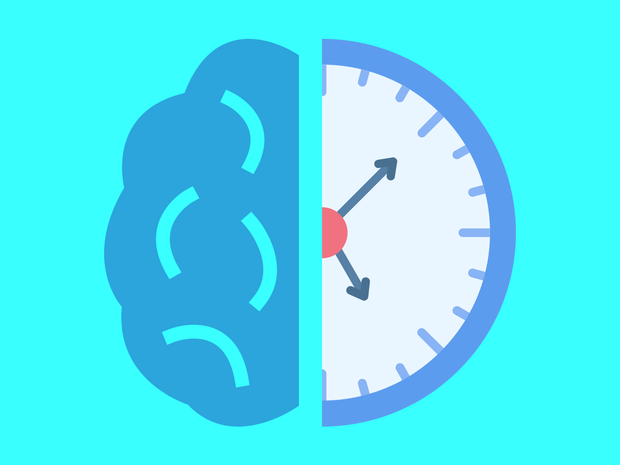Ever wonder how some people seem to ace every test while you’re still trying to find page one of your notes? Spoiler alert: they’re not magic. They’ve just figured out how to study smarter, not harder—and that secret weapon is something called adaptive learning.
Let’s dive into what adaptive learning actually is, how it helps you learn more in less time, and how you can start using it today (especially with a little help from Brainscape).
What Is Adaptive Learning, Anyway?
Adaptive learning is all about tailoring your study experience to your own brain—focusing on what you need to learn and skipping the stuff you already know. It’s basically personalized learning but without the hefty private tutor fees.
The secret sauce behind adaptive learning? Metacognition—a fancy term for your ability to reflect on what you know (and what you don’t). The more accurately you can judge your own understanding, the more effectively you can target your weak spots and level up.
How Brainscape Makes Adaptive Learning Easy
Here’s where Brainscape comes in. Brainscape is a smart flashcard app that helps you study more efficiently using confidence-based repetition. As you study each card, you rate how well you know the answer on a scale from 1 to 5. Brainscape then uses those ratings to determine exactly when to show that card again, based on your personal learning curve.

This method is powered by spaced repetition, a science-backed strategy proven to boost memory retention and cut down total study time. So, instead of wasting time rereading what you already know, Brainscape helps you zero in on what you need most—until you actually know it.
It’s like having a personal trainer for your brain, except it doesn’t yell at you when you miss a day. Plus, it comes with a huge library of flashcards made by world-leading experts. Whether you're training for law school, wine tasting, or a spelling bee, we've got you covered!
Build Metacognition, Boost Your Life Skills
One of the best things about adaptive learning? It trains your metacognitive muscles, which go way beyond test-taking. You’ll become a sharper note-taker (“Should I write this down?”), a better conversationalist (“Do I really know enough to jump into this debate?”), and even a more effective learner long after school’s over.
Whether you’re using Brainscape’s expert-built flashcards or creating your own, you’ll gradually learn to assess your knowledge more accurately and study more strategically.
How to Start Using Adaptive Learning Today
Ready to make your study sessions more effective right now? Here's your three-step plan:
- Rate your knowledge: As you study, ask yourself, “Do I know this?” Give it a 1–5 score. Be honest. This isn’t Instagram, no one’s watching.
- Figure out what matters: Think about what’s likely to be on the test. What did your teacher emphasize? What chapters did they linger on? Target that.
- Prioritize your time: Focus on the stuff you don’t know, then work your way toward the things you kind of know. Save the easy stuff for last.
Brainscape’s platform makes all this automatic, by the way—no spreadsheets or guesswork required.
FAQ: The Secret to Learning More While Studying Less
How do you develop adaptive learning?
Adaptive learning is developed by integrating user feedback into a personalized learning experience. This often includes collecting learner responses (like confidence ratings or answer accuracy), analyzing them with algorithms, and dynamically adjusting the material or pacing to match each learner’s needs. The key is using both data and metacognition to drive decisions about what to study next.
What is the opposite of adaptive learning?
The opposite would be a fixed, one-size-fits-all learning model, often referred to as traditional or linear learning. In these systems, all students receive the same material in the same order, regardless of their prior knowledge, pace, or performance. There’s little to no flexibility in adapting content to individual learners.
What are some adaptive teaching strategies?
Adaptive teaching strategies include confidence-based assessments (where learners rate how sure they are about their answers), spaced repetition (adjusting review intervals based on performance), dynamic difficulty adjustment (tailoring task complexity to student progress), personalized feedback loops (offering real-time, individualized guidance), and allowing learners to choose their study focus based on their needs. All of these approaches respond to how students learn, not just what they’re learning.
Final Thoughts: Learn More by Studying Smarter
You don’t have to grind for hours to get better grades. You just have to study smarter. Adaptive learning lets you focus your energy where it counts most, saving you time and stress while actually helping you retain more. And Brainscape makes that process effortless.
By practicing metacognition and using tools like Brainscape’s confidence-based repetition system, you’re not just prepping for your next test—you’re building brainpower that’ll benefit you for life.
So go ahead, ditch the cram-and-hope method. Smarter studying starts here.
Additional Reading
- Learn Deliberately to Learn Faster
- The Secret to Learning More While Studying Less: Adaptive Learning
- The Biggest Studying Mistake You Might Be Making
Sources
Black, P., & Wiliam, D. (1998). Inside the black box: Raising standards through classroom assessment. London: King’s College.
Kerly, A., & Bull, S. (2008). Children’s interactions with inspectable and negotiated learner models. In Woolf, B., et al. (Eds.), Lecture Notes in Computer Science (pp. 132-141). New York: Springer-Verlag, Berlin Heidelberg. https://doi.org/10.1007/978-3-540-69132-7_18
Metcalfe, J., & Finn, B (2008). Evidence that judgments of learning are causally related to study choice. Psychonomic Bulletin & Review, 15(1), 174-179. https://doi.org/10.3758/PBR.15.1.174
Moreno, J., & Saldaña, D. (2004). Use of a computer-assisted program to improve metacognition in persons with severe intellectual disabilities. Research in Developmental Disabilities, 26(4), 341-357. https://doi.org/10.1016/j.ridd.2004.07.005
